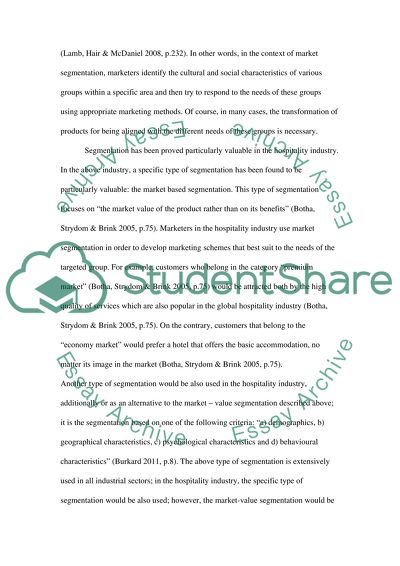Marketing of Segmentation in hospitality industru Essay. Retrieved from https://studentshare.org/marketing/1445224-marketing-segmentation
Marketing of Segmentation in Hospitality Industru Essay. https://studentshare.org/marketing/1445224-marketing-segmentation.


